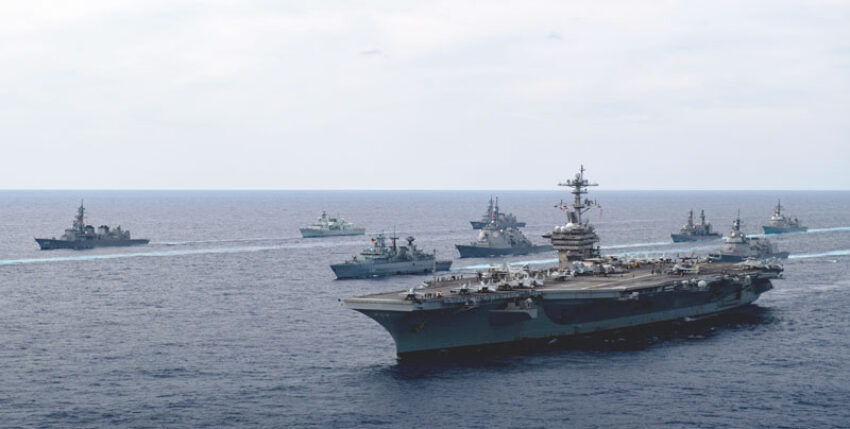After the end of the Indo-Pacific Deployment 2021 of the frigate Bayern almost a year ago, the announced German involvement in the region has gone quiet. How can it continue?
Our problem is not the lack of rules, our problem is the lack of will to comply with and implement them. German Chancellor Olaf Scholz attested to this in his speech to the United Nations in New York on 20 September. Even if the Chancellor's statement primarily refers to the Russian war of aggression against Ukraine, it is also likely to apply implicitly to other autocratic regimes. For it is not only since the caesura of the Russian invasion of Ukraine and the proclaimed turning point that it has become a bitter reality that the foundations of the international rules-based order are increasingly being shaken. This is one of the reasons why the previous German government formulated its interest in helping to shape this key area of the 21st century, which is only weakly penetrated in institutional and normative terms, in its guidelines on the Indo-Pacific.
One of the associated initiatives is the expansion of security policy engagement in the Indo-Pacific, which was emphasised by the Bavaria frigate's Indo-Pacific Deployment 2021. As part of its presence there, the frigate was involved in monitoring the UN sanctions against North Korea, among other things, thereby shining a spotlight on an entity that had previously been little known in Germany:
Access?
- Access to all articles from the marineforum magazine
- Easy payment via PayPal, direct debit or credit card
- The subscription can be cancelled at any time free of charge
- Free of charge for MOV members








